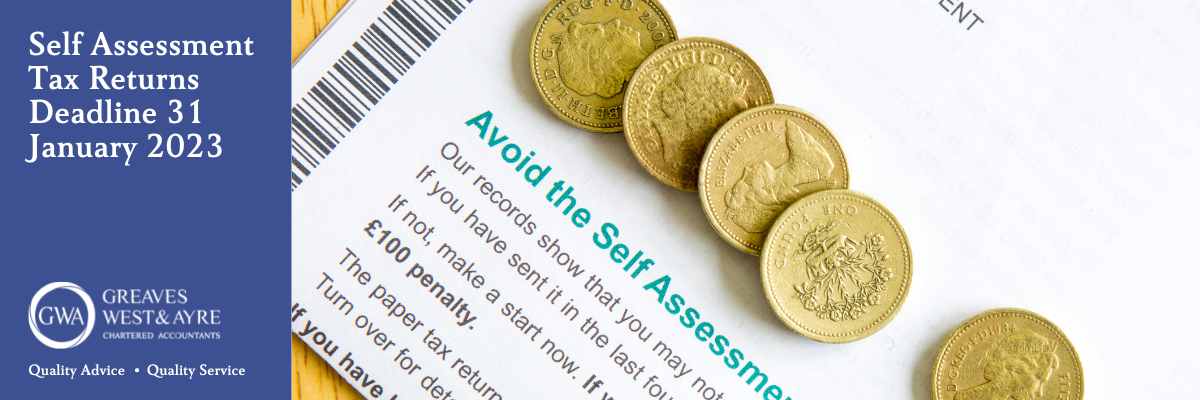Don’t miss the Self-Assessment deadline

The deadline to complete your self-assessment tax return for the tax year 2021/2022 is the end of this month, 31 January 2023.
It’s estimated that over 5 million* people still need to fill in their tax return, quite a high number considering failure to meet the 31 January deadline will incur penalties. If you miss the deadline by just one day a penalty of £100 will be charged. After the 3-month period further fines of £10 a day will be applied, increasing to a maximum of £900.
Here is a guide on of how to avoid been hit with a hefty fine.
Who needs to apply
Tax is usually deducted automatically from wages, pensions, and savings, but people and businesses with other incomes must report it in a tax return. You may need to complete a self- assessment form if you:
- earned more than £2,500 from renting out property
- you or your partner received high income child benefits and either of you had an annual income of more than £50,000
- received more than £2,500 in other untaxed income, for example from tips or commission
- are a self-employed sole trader (including partners/partnerships)
- are a limited company director
- are a shareholder
- are an employee claiming expenses of more than £2,500
- have an annual income over £100,000.
Information and documents that are needed
You will need all the documents relating to your income and allowable expenditures, which will include:
- taxpayer reference and national insurance number
- bank statements and details of untaxed income for the year
- your P60
- your P11D (has information regarding your expenses & benefits)
- payslips
- pension contributions
- interest statements from banks etc
- records of income and expense receipts for self-employed (including partners/partnerships)
- any Gift Aid donations
If you have an accountant/authorised agent who looks after this for you, they will complete the tax return on your behalf. They may need to ask you for additional information, make sure you send this back to them as soon as you can.
How to pay your bill
Once your tax return has been submitted by either yourself or your accountant/authorised agent, you will be told how much tax and National Insurance (if you are self-employed) you will need to pay.
Keep in mind that late payment penalties will come into effect later than filing penalties. They are charged at 5% of the tax bill from 2 March 2023. HMRC have also recently put late interest rates up to 6%.
If you’re concerned you won’t be able to pay your tax bill, you can investigate setting up a settlement plan here. However, you can’t do this until your tax return is submitted.
Don’t be late
If you have an accountant/authorised agent who looks after your affairs, you don’t need to worry, they will ensure your self-assessment return is completed on time.
However, if you are completing the return yourself our advice is don’t be late.
If the tax return deadline is missed even by 1 day, an automatic minimum £100 penalty will apply. After the initial three months, a £10 daily fine applies for every day you don’t submit your tax return. This is capped at 90 days, so you could risk a fine of up to £900, plus the initial £100 fee.
If you’re 6-months late there’s a further £300 fine or 5% of the money that is owed – whichever is higher.
After 12-months another £300 or 5% fine applies. Interest is also added meaning the penalty is even more onerous.
A fine of up to 100% of the tax due could ultimately be demanded if you continue not to file your tax return.
If you are worried about how to pay any tax owing, please do get in touch. Alternatively, you can call the Self-Assessment Payment helpline on 0300 200 3822 (Monday to Friday, 8am – 6pm).
* HMRC 3 January 2023


